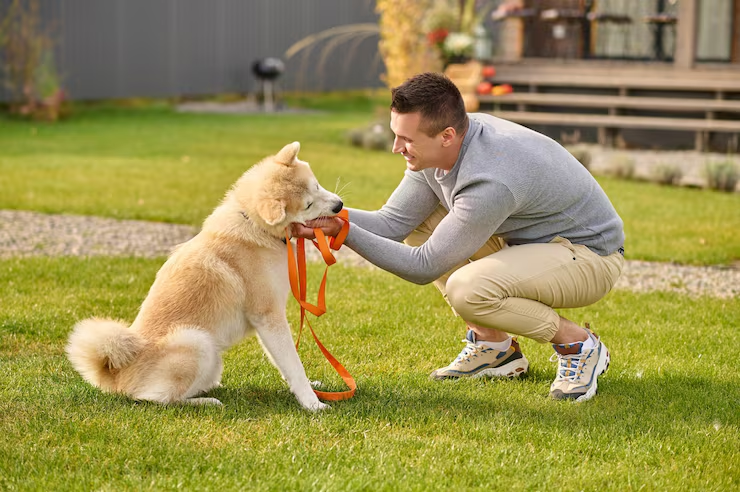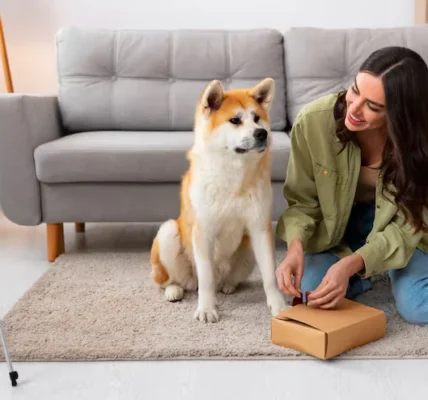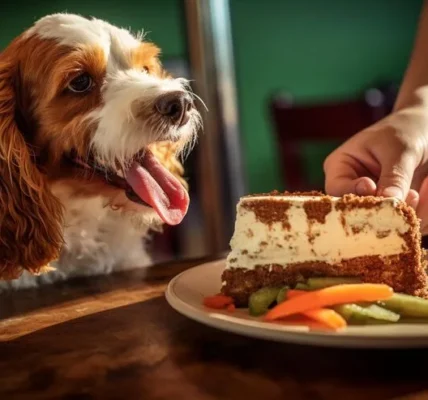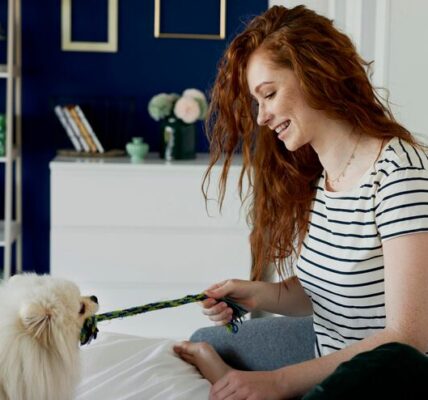Do you prepare your puppy and feel befuddled? Little botches moderate down preparation and weaken certainty. Each puppy needs clear direction and a calm approach. Off-base strategies stretch the canine and moderate down learning. The right strategy makes the puppy learn quicker and keeps him cheerful. Underneath, you will discover common blunders and their adjustments. These tips offer assistance to the puppy in creating savvy and solid behaviors. Steady care and time make a canine steadfast and secure. Day-by-day consideration and fondness reinforce the bond with the puppy. Delicate tone and compensation make the pooch courageous and calm.
Changing the rules frequently
When the rules alter each day, the puppy gets confounded. If you let him come to the couch nowadays and deny it tomorrow, he will not get it. Such irregularity hinders preparation and leads to awful habits.

Case:
Always have the same guidelines. Utilize the same word for each command. For illustration, utilize “sit” each time, never say “sit,” and never say “sit.” Everybody in the family ought to follow the same rules so the puppy doesn’t get mixed signals. If you are steady, the pooch will feel more secure and investigate quickly. You can make a little chart and put it on the cooler with the rules written on it so that everybody can follow it.
Be more strict
Many individuals accept that if you holler or hit the puppy, it will be cured. But in a frightful environment, the canine moves away from you instead of learning. It can, moreover, result in uneasiness or aggression.
Case:
Use positive support instead of cruel discipline. When he carries on well, laud him with a treat, toy, or warmth. If he makes a botch, fairly say “no” unobtrusively or redirect his consideration. Reacting to animosity with animosity is never an arrangement. A calm proprietor produces an adjusted pooch. If the pooch rehashes the botch, it is too successful to overlook it discreetly since mutts act as attention.
Train as well long
People think that the longer the session, the better. But understudies have brief consideration ranges. They get bored or tired of preparing for too long, and at that point, they halt learning.

Case:
Keep preparing sessions brief and fun, a fair 5-10 minutes. Deliver a treat or compliment at the conclusion of each session. A brief workout each day is superior to one long session a week. You can, moreover, coordinate preparing into games like “bring and set” or “cover up and seek.” This keeps the pooch engaged as well as learning.
Plan their training
If you begin preparing without an arrangement, the canine gets befuddled. Instruct basic things like “sit” to begin with; at that point, move on to things like “stand.” If everything is instructed at once, the puppy will not learn anything properly.
Case:
Create a suitable step-by-step arrangement. Center on one command until the canine learns it well. Break down complex commands into smaller steps. You can note your advance utilizing a notepad or an app. Set objectives for each week, such as “This week I will ‘get’ to the fair.” This clarification will offer assistance to both you and your dog.
Ignoring little successes
It is not right to commend a pooch, as it were, when it does something incredible. Center on each small advance. It gets to be an inspiration for the dog.
Case:
Appreciate indeed the littlest advancements. If the puppy tries an unused behavior, indeed if it doesn’t culminate, reward it. As if the puppy “remains” for 3 seconds; that’s, moreover, a victory. Inspiration is kept up, as it were, when the pooch feels its endeavors are worth it. Each compensation sends a positive flag to his brain.
Giving as well numerous orders
If you allow a few commands at once, the canine gets befuddled. Utilize a straightforward word for each command. As well, too much instruction makes it troublesome for a dog.
Case:
Work on fundamental commands like “sit,” “remain,” “come,” and “heel” to begin with. Utilize the same word for each command. Once you’ve aced the essentials, steadily include unused commands. If you do not get a command, do not rehash it; streamline it to begin with. It is vital to strike a balance between clarity and repetition.
Socialization of children
If your pooch does not get along with other individuals or mutts, he may be modest or forceful. This can lead to issues such as yapping, falling, or biting.

Case:
Take your puppy to parks, preparation classes, or to friends’ mutts. Screen each interaction. Great socialization makes the canine inviting and sure. Present it to begin with in a little, controlled setting, such as with a calm canine on the terrace. Socialization ought to be done not as it were with mutts but also with other individuals, commotion, and unused environments.
Do the preparation inside only
If the preparation is done inside, as it were, the puppy will, as it were, tune in when it is in a commonplace environment. There are also numerous diversions out there where orders do not work.
Case:
Train in distinctive places, like a stop, a road, or a friend’s house. Home in a calm spot to begin with; at that point, slowly include diversions. This will educate the canine to comply with commands in all circumstances. This is particularly critical if you need your pooch to carry on well on a chain. The genuine test is preparing in real-life situations.
Lack of patience
Training takes time and persistence. If you get disappointed, the pooch feels pushed as well. This causes him to stress instead of learning.

Case:
Appreciate the little advance. Persistence makes preparing simpler and more pleasant. Each canine has its own claim-learning fashion; some take 2 days, some 2 weeks. Grant yourself and your canine time. Preparing too feels normal when the environment is relaxed.
Conclusion
Dog preparing reinforces the canine with tolerance and a calm intellect. Redressing each botch builds belief and a bond. Clear rules and rewards offer assistance to the dog in learning. Consistent preparation keeps the puppy faithful and upbeat. Social time and a delicate tone make the pooch braver. Brief drills each day fortify the dog’s abilities. Delicate taps and delicate hands make the puppy feel secure. Additional adoration makes the pooch pleased and brightens its life. A calm arrangement keeps the puppy secure and builds belief. Standard preparation keeps the dog steadfast and brightens its disposition.





